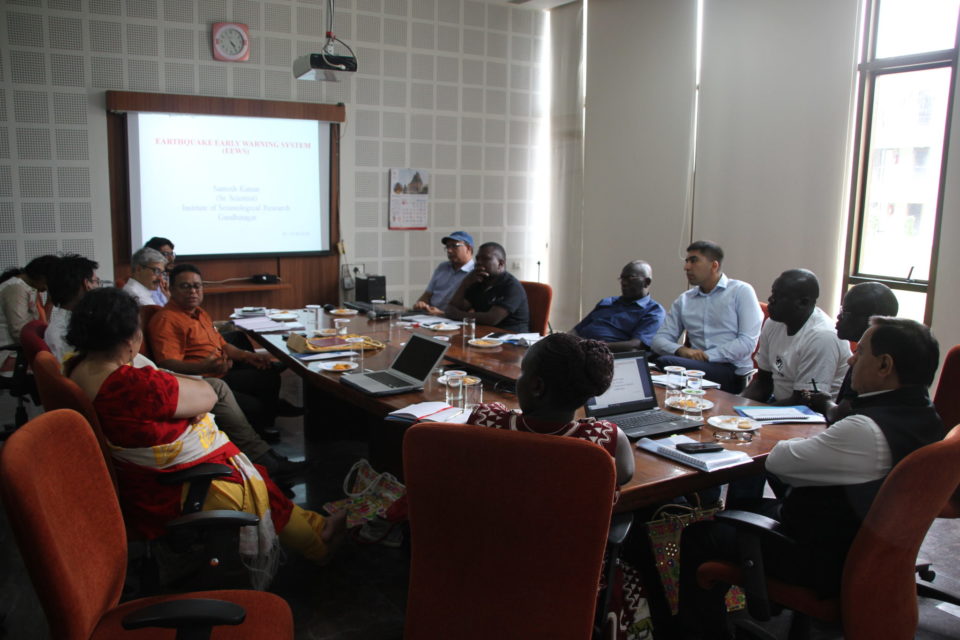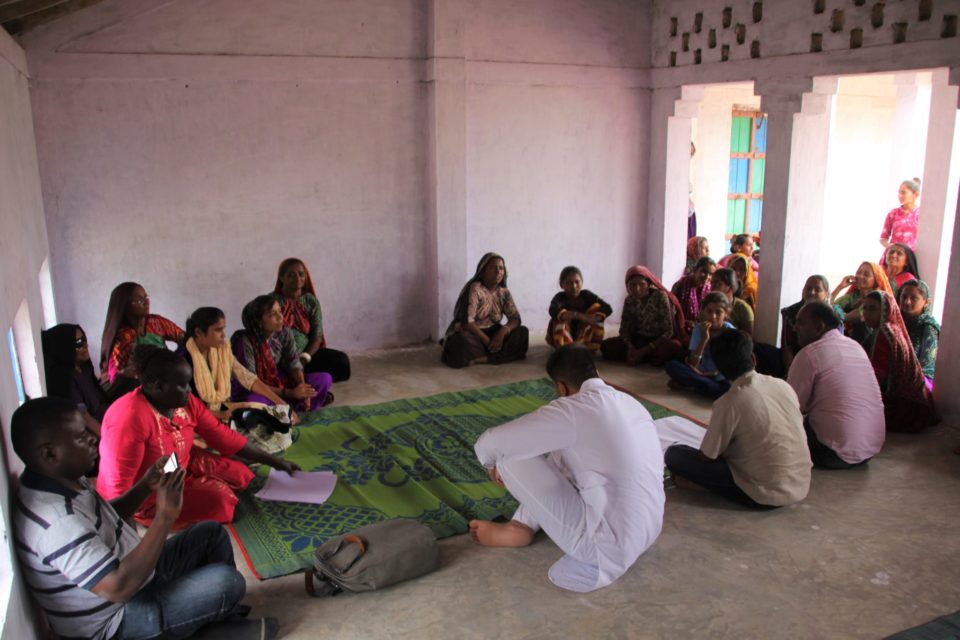
Cross-country exchange of experiences in using ecosystem based approaches for reducing disaster risk
-
Coastal resilience
-
Natural infrastructure solutions
In a new collaboration under the Partners for Resilience (PfR) programme, six delegations from South Sudan visited the Indian PfR sites for a week-long knowledge exchange meeting from August 8.
Team members included Mr Banak Joshua, Director General, Ministry of Humanitarian Affairs and Disaster Management, South Sudan; Mr Arvind Das, Country Lead PfR, South Sudan – Netherlands Red Cross; Mr Henry Taban, Director, Rural Action for Hunger; Ms Bernice Kitum, Program Coordinator, HOPE; Mr David Owot, South Sudan Red Cross; Mr Titus Wamae, Wetlands International Kenya and South Sudan; Ms Sanne Hogesteeger, Red Cross Climate Centre, Netherlands

During the visit, the delegations met with heads of National Disaster Management Authority and India Meteorological Department to get an insight on PfR implementation in India and the use of different tools to assess and understand water-mediated risks (e.g. Hazard Vulnerability Capacity Assessment, Ecosystem Services Shared Value Assessment), climate forecasting and successful cases. the The team was briefed on the various policies and institutional mechanisms in India relevant to disaster risk reduction (DRR). The delegations also visited programme sites in District Kutch, Gujarat and District Gopalpur, Odisha to meet the local communities and CSO partners. Through the engagement, they gained first-hand insight into the ways in which community-based ecosystem conservation action is being used to address the hazards associated with floods and droughts.

South Sudanese are still recovering from the after-effects of war. Coupled with the recent trends in flooding and droughts, they have little to look forward too. But the Ministry of Humanitarian Affairs and Disaster Management, Government of South Sudan, aims to use the learnings from Indian experiences where a paradigm shift has taken place from relief centric approaches towards risk reduction. The delegation observed that communities they visited had shown resilient attitudes especially in the face of extreme events. The CSO network and DRM community in India as enablers for risk reduction was well understood. The India team was given valuable insight into the management of DRR activities with large-scale coalitions and operating in times of conflicts.
